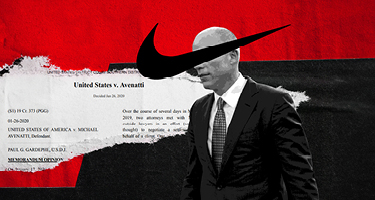Get a lawyer. A familiar adage from crime dramas and thrillers, but likely not a reality that the average professional anticipates facing. Sure, if the FBI or police knock on your door and request an interview, you are likely to consult counsel. But when the government or a regulatory agency serves your company with a request for documents in the form of a grand jury or administrative subpoena (or even a civil investigative demand), is there really a need to spend money hiring a lawyer? Or is it good enough to just send what you think they are looking for in the hopes you can dispose of the whole thing quickly and move on?
Get a lawyer. Counsel can provide real value working on behalf of the recipient of a subpoena or demand. First, while you may well believe that you and your company have done nothing wrong, there is no guarantee that prosecutors share that view. An attorney will use the request as an opportunity to invite discussion and learn whether prosecutors agree that the recipient—either you or the company—is merely a witness with information about some other wrongdoing. Second, counsel may be able to lessen the burden on the company by narrowing the scope of the requests. Complying with any request, particularly one that requires the collection of electronic documents, may be costly and time-consuming. Any success in limiting the scope of a subpoena will likely result in a substantial saving of costs, resources and time. Third, regardless of the scope, an attorney can ensure proper compliance with the request and, in doing so, avoid the risk of the government believing you are being non-cooperative.
Get a lawyer. If prosecutors believe that the subpoena recipient has or may have engaged in wrongdoing, an experienced criminal attorney will be far better positioned to discuss whether there is criminal exposure and assess the extent of that risk. That information will inform counsel’s review of the documents to be produced and identify opportunities for advocacy in connection with any production.
For example, imagine a scenario where your company receives a civil investigative demand. In discussing the requests and investigation with prosecutors, your counsel learns that while the company is not the target of the investigation, prosecutors are still investigating and are not sure that the company is completely without wrongdoing. In reviewing the company’s files, counsel finds a few emails that are responsive to the demand, and some of them contain red flags related to the prosecutor’s investigation. Counsel raises these with you, and in an attorney-client privileged discussion, you are able to provide further context and explain that these emails are isolated incidents and that you recently implemented a new training program that should resolve the issue going forward. The documents still need to be produced, but because you have hired counsel, they can be produced in continuing conversation with prosecutors. Your attorney can provide the context that mitigates potential wrongdoing. At the same time, taking this type of proactive approach may also cut off an unnecessarily prolonged, disruptive and costly investigation by getting to the core issues quickly and resolving the matter. And in the event prosecutors pursue your company, counsel is in a position to advocate for a favorable resolution immediately.
Get a lawyer. Regardless of the subpoena or demand recipient’s status, there may also be applicable privileges that an attorney can and should protect. Perhaps the most familiar is attorney-client privilege, but there may also be legal protection for documents that do not involve attorneys. For example, even the production of documents can be viewed as making a “statement” to law enforcement. The Fifth Amendment protects against self-incrimination and, in certain circumstances, can support withholding documents otherwise responsive to a subpoena or demand from the government. There are also other privileges, such as the self-critical analysis privilege, that may protect internal documents showing corrective actions a company took from production. Whether or not you elect to assert any applicable privilege will depend on a number of factors specific to your situation. Not having a lawyer to assess and counsel you on the applicable privileges (and timely assert any if that is the decision) will risk waiving those privileges not just in the matter at hand but also potentially in any future litigation.
In short, get a lawyer. And if it is in your compliance budget, get a lawyer before you receive a subpoena or civil investigative demand. A procedure for employees who could interface with law enforcement serving such a request (e.g., reception, management) will help ensure that no uncounseled statements are made during a seizure or service of a subpoena. It will also allow counsel to be contacted quickly and possibly even be present for the search or to accept service of the subpoena and begin shepherding the process immediately to protect you, the company and its employees.

Anne M. Collart is a Director in the White Collar & Investigations Group at Gibbons P.C. She has represented individual and corporate clients in a variety of criminal and civil matters and government investigations, conducted multiple internal investigations throughout the United States and in Germany and litigated sensitive and high-stakes cases. Her white-collar criminal defense practice includes trial and appellate matters, and she has argued cases in both federal and state appellate courts. Her clients come from a range of industries, including higher education, healthcare, manufacturing, law and entertainment.

Ricardo Solano Jr., an experienced litigator and well-known, highly regarded leader in the white-collar defense space in New Jersey, co-chairs Gibbons P.C.’s White Collar & Investigations Group. He represents companies and individuals in the healthcare, financial services and other industries in both criminal and complex civil matters that often concern allegations of fraud, bribery, False Claims Act, public corruption, tax evasion and money laundering and involve federal, state and local law enforcement authorities, as well as civil and regulatory proceedings. He is a former Assistant U.S. Attorney for the District of New Jersey and former New Jersey First Assistant Attorney General.






























